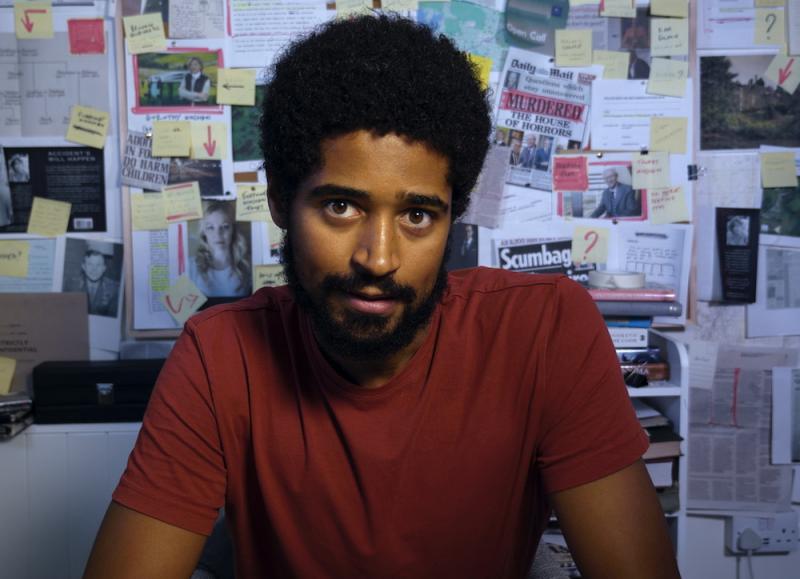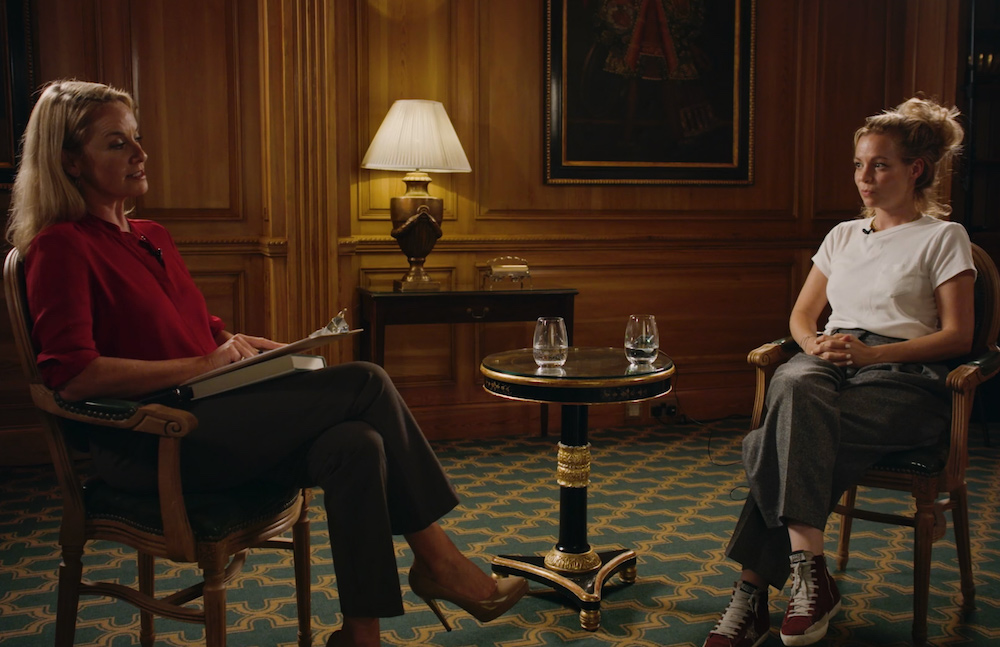What a Carve Up!, Barn Theatre online review – ingenious whodunnit | reviews, news & interviews
What a Carve Up!, Barn Theatre online review – ingenious whodunnit
What a Carve Up!, Barn Theatre online review – ingenious whodunnit
Film adaptation of Jonathan Coe’s 1994 bestseller is a postmodern masterpiece

Classical murder mysteries end with a neat solution — and with the arrest of the perpetrator. Postmodern murder mysteries play games with the genre, turning it upside down and inside out. This film adaptation of What a Carve Up!, Jonathan Coe’s 1994 bestselling novel, is a postmodern crime story — and then some.
Okay, so some plot background: in January 1991, six members of the powerful Winshaw family are found murdered. The police are convinced that there is only one suspect, Michael Owen, a successful writer, who is investigating the corrupt family and writing a scandalous history of them. Whereas the original novel begins during the second world war, this adaptation by playwright Henry Filloux-Bennett begins in the present, with two new characters, Raymond Owen, Michael’s son, who believes that his father is innocent, and Josephine Winshaw-Eaves, the last surviving member of the family, who thinks exactly the opposite.
With chronology turned upside down, Harvey’s version — expertly filmed by Graeme Watt — offers a postmodern media collage of fragments that tell this convoluted story. So while Raymond decides to prove his father’s innocence by presenting the evidence of his own Google-fuelled and YouTube-retrieved researches, Josephine gives a television interview in which she tells us the alternative facts. This contrast is a great device that increases the conflict between the high-born and reactionary Josephine — her pro-Trump T-shirt reads: “Pussies for Trump. Let’s grab four more years” — and the mixed race Raymond, who rather sweetly seeks out the truth.
Originally a 1980s state-of-the-nation story, in which the virtues of Thatcherism were attacked and exposed as vices, this What a Carve Up! is right up to date, because, after all, we still have a Tory government that cares more for its chumocracy and making private profits than for increasing the public good. So there are jokey mentions of Dominic Cummings, Ann Widdecombe and the pandemic, as well as welcome satires on the vicious selfishness of financiers, arms dealers, media tycoons, art bigshots, agribusiness shitheads and MPs. Mentions of the statue of a family slave trader from the past rub shoulders with nostalgic shots from the 1961 What a Carve Up film.
 Harvey exploits the sheer diversity of today’s media, using parodic fragments from YouTube interviews, old newsreels, talking-head interviews, webcam shots, podcasts, old cassette recordings, crime drama reconstructions, true crime references, spoof adverts, old family photographs, scene of crime shots and other archival images. In all of these retakes, rewinds and cuts, the image of a ghastly family, whose Tory pieties barely conceal a stinking streak of sheer greed and corruption, comes into sharp focus. Yes, they are pro-Nazi and friends of despots. By end, you really start to think: if they hadn’t been murdered already, I’d have gladly done ’em in myself.
Harvey exploits the sheer diversity of today’s media, using parodic fragments from YouTube interviews, old newsreels, talking-head interviews, webcam shots, podcasts, old cassette recordings, crime drama reconstructions, true crime references, spoof adverts, old family photographs, scene of crime shots and other archival images. In all of these retakes, rewinds and cuts, the image of a ghastly family, whose Tory pieties barely conceal a stinking streak of sheer greed and corruption, comes into sharp focus. Yes, they are pro-Nazi and friends of despots. By end, you really start to think: if they hadn’t been murdered already, I’d have gladly done ’em in myself.
If this is hardly challenging to the liberal sensibility, it’s all rapid and colourful enough to make for easy viewing, with the film’s story having a compelling quality that soon hooks you. Most of the piece’s stars — Jacobi, Fry, Imrie, Griff Rhys Jones and Sharon D Clarke — do not appear on screen, but their voices give the story a cosy familiarity. Alfred Enoch lends Raymond a friendly charm, although he doesn’t quite convince as the furiously obsessive son he’s meant to be, but Fiona Button is super as the slimy and offensive Josephine, who we watch trying to manipulate her on-camera interview with Tamzin Outhwaite’s sharp and skeptical journalist (pictured above, left).
A co-production between The Barn theatre, Cirencester, the Lawrence Batley theatre, Huddersfield, and the New Wolsey in Ipswich, the various sections of the show were recorded remotely by the cast members, but Harvey has put the whole thing together with enormous flair. Filloux-Bennett’s fractured storytelling is sophisticated, and the jokes about Hamlet or “thespian furloughs” are sure to raise a smile. There’s something very beguiling in this genre parody, with its intriguingly complex plot and ingeniously meta-theatrical (or should that be meta-televisual?) presentation. It really is great fun — a postmodern masterpiece.
Add comment
The future of Arts Journalism
You can stop theartsdesk.com closing!
We urgently need financing to survive. Our fundraising drive has thus far raised £49,000 but we need to reach £100,000 or we will be forced to close. Please contribute here: https://gofund.me/c3f6033d
And if you can forward this information to anyone who might assist, we’d be grateful.

Subscribe to theartsdesk.com
Thank you for continuing to read our work on theartsdesk.com. For unlimited access to every article in its entirety, including our archive of more than 15,000 pieces, we're asking for £5 per month or £40 per year. We feel it's a very good deal, and hope you do too.
To take a subscription now simply click here.
And if you're looking for that extra gift for a friend or family member, why not treat them to a theartsdesk.com gift subscription?

Comments
This needs to be shown /